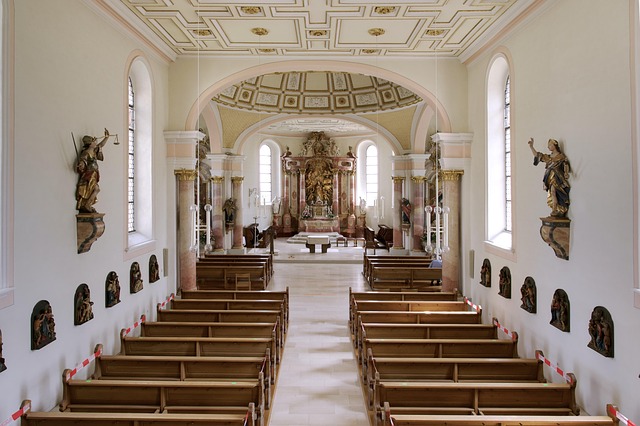Christianity, as one of the world’s major religions, is not only a belief system but also a rich tapestry woven with rituals that enhance and express faith. These sacred rituals serve as a bridge between the earthly experience and the divine, providing followers a sense of community, identity, and purpose. From baptism to communion, each ritual carries a profound significance, marking milestones in the lives of believers and embodying the core tenets of love, forgiveness, and grace that define Christian faith.
Baptism, for instance, symbolizes the washing away of sin and the rebirth into a new life in Christ. It’s often a deeply emotional experience, not just for the individual being baptized but also for the family and community gathered to witness. The act itself can be seen as an initiation into the Christian faith, representing a commitment to follow the teachings of Jesus. This powerful ritual connects participants to the broader history of Christianity, echoing the baptism of Jesus by John the Baptist and affirming their own faith journey.
Another cornerstone ritual is Communion, or the Eucharist, which commemorates the Last Supper and the ultimate sacrifice of Jesus. This ritual transcends time and space, allowing believers to partake in a sacred meal that signifies unity with Christ and with each other. Each time Christians gather around the table, they reaffirm their faith and communal bonds, sharing not only bread and wine but also their hopes, struggles, and gratitude. It is in these moments that many recognize the presence of the sacred in the everyday, finding solace and strength in their faith.
Additionally, the cycle of the liturgical calendar, which includes seasons like Advent, Lent, and Easter, frames the Christian journey through time. Each season is filled with its own rituals and traditions that guide believers in reflecting on their faith and growth. Advent prepares the heart for the coming of Christ, while Lent offers a period of introspection and penance leading up to the joyous celebration of Easter. These rituals not only mark the passage of time but also encourage a deeper engagement with the spiritual dimensions of life.
Christianity is also characterized by its many rites of passage. These rituals, such as confirmation and marriage, are significant events that strengthen one’s faith community and personal commitment to God. They are moments of joy and solemnity, marking transitions in life that require divine guidance and support. The ceremonial aspects of these rituals—prayers, readings, and community involvement—help cultivate deeper relationships among believers and reaffirm their shared values.
Furthermore, the act of prayer itself, often considered the heartbeat of Christian worship, transcends structured rituals. It invites believers into a personal engagement with the divine, where they can express their hopes, fears, and gratitude. Whether in the solitude of one’s home or gathered with the congregation, prayer is a profound acknowledgment of faith, a ritual that reinforces the relationship between the believer and God.
The various rituals of Christianity come together to create a holistic framework that not only supports individual faith but also fosters community. They remind believers that they are part of something greater than themselves, a journey of faith that stretches back through centuries and across cultures. In experiencing these rituals, individuals find not just tradition but also a living expression of their beliefs, a nurturing space to explore the essence of faith and what it means to be part of the Christian community.




